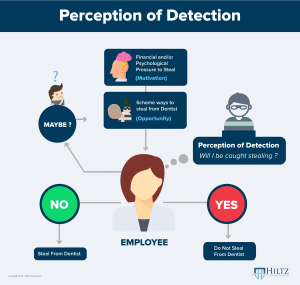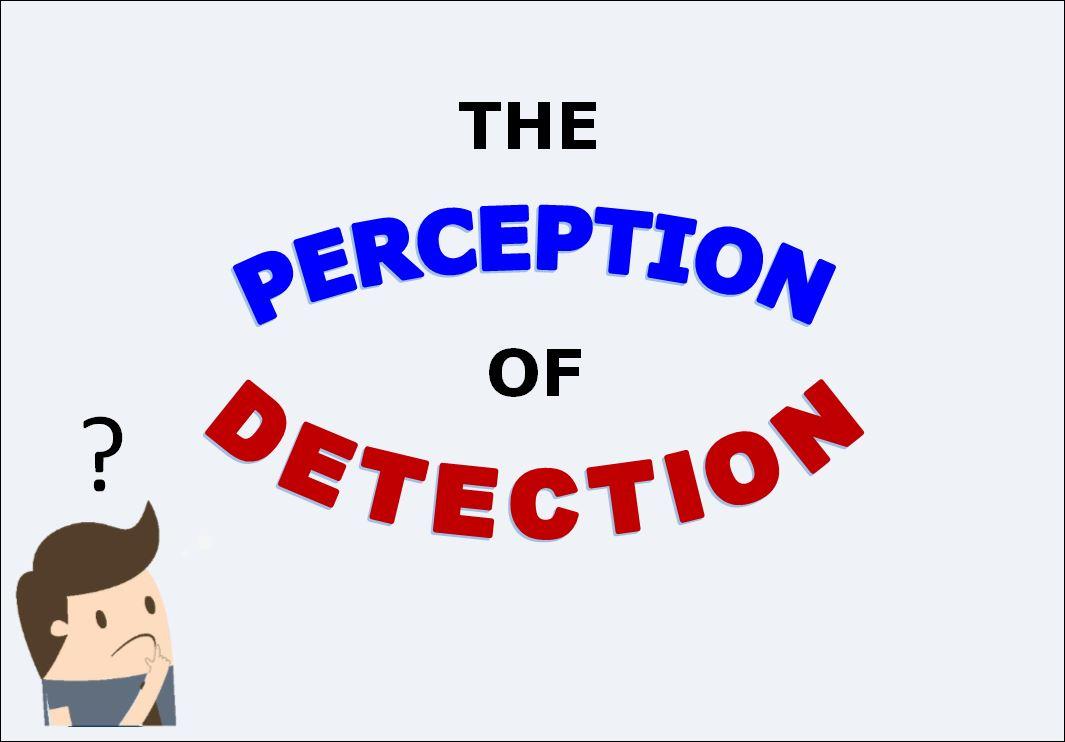#1 • The Perception of Detection
THIS BLOG IS OUT-OF-DATE!
This blog was moved in 2019 and renamed "Dental FraudBusters"
#1 in our series of #TIPS intended to help you deal with fraud, embezzlement, waste, and abuse in your dental practice.
The Perception of Detection is the most powerful fraud deterrent ever. It really works.
Imagine that you are driving and see a guy holding up this sign about a half mile from where you once saw a police speed trap.
Would you ease off the gas?
Caught in this moment, most drivers will momentarily raise their foot from the gas pedal, and proceed with caution for a short time.
Speeding drivers will hit their brakes.
When speeding drivers perceive they will be caught, they slow down. That’s the perception of detection.
The Perception of Detection deters people from doing things without the proper authorization or that are unauthorized or illegal.
If your employees believe they will be caught, they will not steal from you.
Every employee that steals follows the same pattern of thinking.
Motive –> Opportunity -> Rationalize
Motive
The employee feels pressured to steal. The reasons vary, and the list is extensive. Often the employee needs money to satisfy a debt, make up for a loss of spousal income, wanting to satisfy an abusive partner – or to keep an unwilling partner a relationship, support a gambling addition, pay for medical expenses, or a psychological need to “have more”.
Opportunity
The employee is tempted by a situation they cannot handle, and in the blink-of-any eye, your money, becomes their money. Internal controls can help to remove certain opportunities for fraud, however a sufficiently motivated employee can find a way to circumvent to the internal control.
Rationalization

Experts offer many reasons why an employee can rationalize stealing from the dentist.
“The dentist makes a lot of money and won’t miss it.”
“I work hard, if it wasn’t for me the dentist wouldn’t be successful, I deserve it”
“I haven’t had a raise in years”
Regardless of the rhetoric employees use to rationalize stealing, there is one question all employees ask before they decide to take your money and make it their money.
“Will I be caught?”
If the answer is YES, the employee is deterred from stealing.
If the answer is NO, the employee will steal.
As such, a critical element of fraud deterrence is to increase the perception that fraud will be detected.
This notion has been around since the 18th century when English philosopher Jeremy Bentham originated his classic criminology theory, which says that a person’s propensity to commit a crime is determined by his or her perception of the related risks and rewards. The greater the risk of detection and apprehension, the less likely a person is to violate the law.
Large retail stores use extensive networks of security cameras to increase the perception that shoplifting will be detected, and they are very effective.
Smaller stores that cannot afford security cameras often install inexpensive “mock” cameras that are difficult to tell from the real thing. When shoplifters cannot tell the difference, the fake cameras are just as effective!
So, here are some basic things that you can do to increase the perception of detection in your office.
Exhibit ethical leadership as the practice owner.
If you always uphold professional ethics and integrity, your employees will be more inclined to uphold the same values. The moment you appear unconcerned with ethics or integrity, your employees will follow suit.
Set standards and follow them, impeccably. Separate business from personal relationships. Exercise impartiality when dealing with employee matters.
Install cameras at the front desk.
Ensure that you do this in accordance with federal or local laws. Dentistry IQ surveyed dentists regarding the use of security cameras in the office; view the results here.
Create and implement a Computer Usage Policy
The policy should include a reminder to each employee that their e-mails, telephone calls and Internet travels can be, or are being, monitored by the practice.
The policy must notify each employee of practice management software “audit logging”. Almost all dental practice software maintains some form of an audit log. Your employees must know that audit logging exists and restricted from accessing it. Set up your dental software to restrict employee access to the audit log.
Free Download: Sample Computer Use Policy
Create a Business Code of Ethics
The policy should include sections on how to report fraud and punishment for dishonest acts.
Free Download: Sample Business Code of Ethics
Thanks for visiting.
If you have questions, do not hesitate to contact us for assistance.





